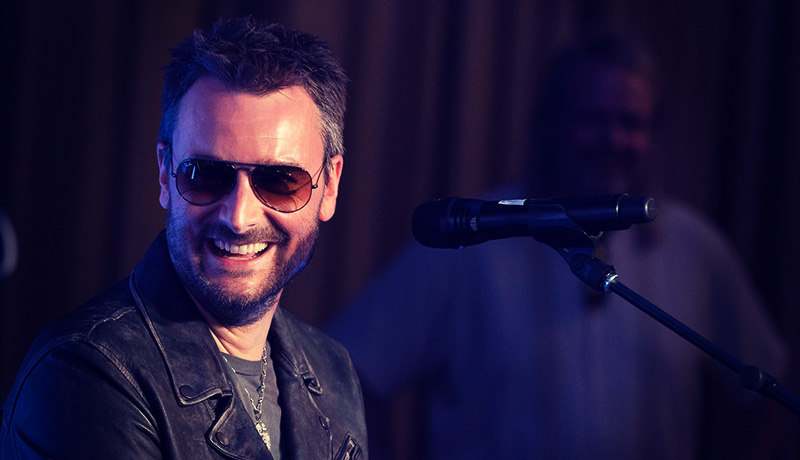

Eric Church
Photo Courtesy of Mandarin Oriental Hotel Group
Audio purveyor Bowers & Wilkins and Mandarin Oriental hotels have teamed up to host #DestinationSound, a global music series that launched this past April in Las Vegas with a special performance by chart-topping country singer Eric Church.
Though future performances have yet to be formally announced, Bowers & Wilkins has made some of its audio equipment available in rooms at select Mandarin Oriental properties, including those in New York, Barcelona, Paris and Shanghai.
In addition, Forbes Travel Guide Four-Star Mandarin Oriental, Washington D.C. recently introduced the Bowers & Wilkins Sound Bar to its eighth-floor club lounge, offering you access to products such as the 803 Diamond speakers and P7 model headphones.
We caught up with Church, who’s prepping to hit the summer festival circuit in promotion of his critically adored Mr. Misunderstood, as he sounded off about why this partnership strikes the perfect chord for music lovers and luxury travelers.

#DestinationSound, Photo Courtesy of Mandarin Oriental Hotel Group
Why is sound an essential part of a hotel experience?
It’s everywhere. When you walk in the lobby, elevator, rooms, it permeates what a hotel is. Especially in Vegas, I would say more so than any other city. Sound just becomes a part of the nuance and the experience.
My wife gets irritated because, if there’s any music on, I focus on it. I can be at dinner with her. If there’s music [on], my ear [goes] there. For some people, I’m sure it’s background, [but] for me, it’s something I pay attention to.
What’s your favorite city to travel to?
We travel so much. Basically our job is to travel. We enjoy New York. We enjoy L.A. We enjoy Vegas — we’re there four or five times a year. I enjoy the Pacific Northwest, too.
Strangely, the city that I probably enjoy the most is just coming home to Nashville — being here and being with family.
How did you partner with Bowers & Wilkins?
They just came on my radar. The way people consume music is really reliant upon the speakers.
When I put on a vinyl record, and I run it through that system, it gets as close to what I heard in the studio. For me, that’s important, because that’s what I’m trying to convey to the consumer.
What are some of the music-related essentials that you have with you when you travel?
I always have some type of guitar with me and then some type of listening device. It’s easy now with the iPhone; everybody plugs that in.
But I’m still a snob in a lot of ways. I have the old-school Walkman. I can’t really wheel around a vinyl turntable. I take the little Walkman, because it’s better sound quality. It’s not quite as compressed. Great headphones help that, too.
If I’m not on an airplane or in the airport with headphones on, I’m somewhere playing guitar.
What has been your experience with Mandarin Oriental as a brand?
Mandarin Oriental is the best service I’ve experienced at a hotel. Some people go to Vegas and want the casinos. They want it to feel like Vegas. I enjoy it not feeling that way. At Mandarin Oriental, Las Vegas, there’s no gaming. [There’s] incredible personal service. I was blown away with how accommodating everyone is.
The amenities — from the food and the pool to the quiet — are important to me.
How does good quality audio influence your creative process?
It’s so important to have your concert sound, your sound guy. He’s more important than any [band] member and yourself. No matter how good you play, how good you sing, if that is not conveyed to the audience, what’s the point?
The same thing with the studio — when you’re there, the most important thing is getting the moment right, getting the music right. But then part of that is making sure what you’re doing in the studio gets conveyed to the listener.
In this digital world, the fullness of the track is what goes away. It’s why I think vinyl has made a resurgence. There are many younger people who grew up in the digital age and I don’t know that they ever knew what the other sound was — that there was so much more to an album, to a track, sonically, than just what they were hearing on their iPhone [or] in their earbuds.
When you really hear the rounded-out process of music, there’s a whole other spectrum, emotionally, of what that music does. Once you’ve heard it, it’s really hard to go back, because I know what I’m missing.

